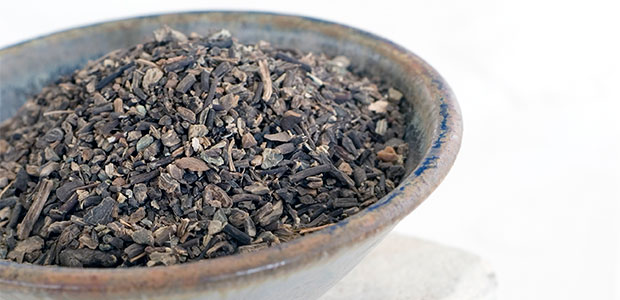Advertisement
Black Cohosh
Nature's best solution for hot flashes

Black cohosh Cimicifuga racemosa is without question the most popular natural approach to menopausal symptoms. Native to North America, First Nations people cultivated black cohosh for a range of purposes from use as a diuretic to a cure for rheumatic pains.
More recently, its emergence as a popular female remedy has been fueled by continued positive clinical studies on its effectiveness and safety, coupled with the negative press on hormone replacement therapy (HRT). In 2002 the National Institutes of Health (NIH) halted the Women’s Health Initiative study, a clinical trial designed to determine if HRT was beneficial to healthy women. The study concluded that the risks of taking combined estrogen and progestin outweighed the benefits and found a 41-percent increase in the risk of stroke, a 29-percent increase in the risk of heart attack, a doubled risk of blood clots, a 22-percent increase in cardiovascular disease, and a 26-percent increase in the risk of invasive breast cancer.
Effectiveness of Cohosh?
Black cohosh extract has been shown in double-blind studies to produce better results in relieving common menopausal symptoms such as hot flashes, vaginal atrophy, depression, and anxiety compared to conjugated estrogens such as Premarin. In one study 80 patients were given either black cohosh extract (two tablets twice daily providing 4 mg 27-deoxyacteine daily), conjugated estrogens (0.625 mg daily), or placebo for 12 weeks.
Black cohosh extract produced better results in hot flashes, a symptom indicative of the severity of all menopausal symptoms, in that the number of hot flashes experienced each day dropped from an average of five to less than one in the black cohosh group. In comparison, the estrogen group dropped from only five to 3.5.
Even more impressive was the effect of black cohosh on the vaginal lining. While conjugated estrogens as well as the placebo produced little effect, a dramatic increase in the number of superficial cells was noted in the black cohosh group.
Safety of Cohosh?
A recent study highlights the tremendous safety of black cohosh. This comprehensive review included preclinical and clinical research in estrogen-sensitive populations, including women at risk of breast cancer and breast cancer survivors, as well as human cell lines most relevant to breast cancer. The lead researcher, Dr. Tieraona Low Dog of the University of New Mexico and an advisor to the NIH Center for Complementary and Alternative Medicine concluded, “The findings should reassure the increasing number of women who cannot or choose not to take HRT that safe options exist to treat their menopausal symptoms.”
In addition, the BGA, the German equivalent to the US Food and Drug Administration, includes no contraindications or limitations of use for black cohosh in cancer patients. Another recent review concluded “that extracts of black cohosh do not bind to the estrogen receptor, up-regulate estrogen-dependent genes, or stimulate the growth of estrogen-dependent tumors in animal models.” The mechanism of action is thought to be via action on control centres in the brain and vascular system rather than through any estrogenic effect.
In a test tube study published in February 2004 in Breast Cancer Research and Treatment published the triterpene glycoside deoxyacteine found in the standardized extract of black cohosh was shown to actually promote programmed cell death (apoptosis) in breast cancer cell lines. This study is consistent with others, including both animal and human studies.
There are no known drug interactions or significant side-effects.
Dosage Data
The dosage of black cohosh is usually based on its content of 27-deoxyactein, which serves as an important biochemical marker to indicate therapeutic effect. The dosage of the black cohosh extract used in the majority of clinical studies has been enough of the extract to provide one or two mg of 27-deoxyacteine twice daily.
How Long to Take Cohosh?
Although the German Commission E monograph has recommended that treatment with black cohosh be limited to six months (the standard recommendation for hormone replacement therapy as well), based on detailed toxicology studies, it appears the black cohosh extract is appropriate at recommended levels for long-term continued use.
The Final Word
Based on current information and scientific investigations, it is clear that black cohosh extract offers a suitable natural alternative to hormone replacement therapy for menopause.
Black cohosh extract is especially useful in situations in which hormone replacement therapy is contraindicated such as women with a history of estrogen-dependent cancer, unexplained uterine bleeding, liver and gallbladder disease, pancreatitis, endometriosis, uterine fibroids, or fibrocystic breast disease.




